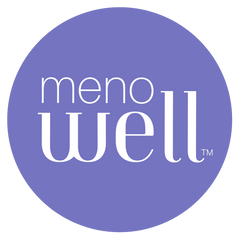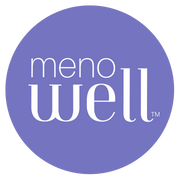Top 10 Nutrients Every Woman Needs in Midlife

As we move through perimenopause and menopause, our bodies change—and so do our nutritional needs. The truth is, what worked in our 30s might not work the same way now. Shifting hormones, changes in metabolism, and increased health risks mean it's time to focus on foods and nutrients that support energy, mood, brain health, and more.
This isn’t about restriction. It’s about support. Choosing the right foods can help women in midlife feel more balanced, more energized, and more in control of their health.
Below are the top 10 nutrients every midlife woman should know about—and why they matter.
1. Protein
Why it matters: As estrogen declines, muscle mass naturally decreases. Protein helps your body hold on to muscle, stay strong, and feel satisfied after eating.
How to get it: Aim to include a mix of protein sources throughout the day. Lean meats like chicken and turkey, eggs, fish, and dairy products like Greek yogurt are all great options. You can also turn to plant-based sources like beans, lentils, tofu, nuts, and seeds. And for a convenient, hormone-friendly snack, bars made with plant protein—like MenoWell Fiber + Protein Bars—make it easy to get a satisfying protein boost on the go.
2. Fiber
Why it matters: Fiber keeps digestion smooth, helps you feel full longer, and supports blood sugar balance—all essential in midlife.
How to get it: Vegetables, fruits, whole grains, flaxseed, and fiber-rich snack bars are great choices.
3. Calcium
Why it matters: Bone loss speeds up in menopause. Calcium helps maintain bone strength and structure.
How to get it: Leafy greens, broccoli, almonds, and fortified plant milks are excellent sources.
4. Magnesium
Why it matters: Magnesium supports muscle and nerve function and can help with sleep and stress—two things many women in perimenopause struggle with.
How to get it: Pumpkin seeds, leafy greens, beans, and dark chocolate (yes, really!)
5. Omega-3 Fatty Acids
Why it matters: These healthy fats support brain health and may help ease mood swings and inflammation.
How to get it: Flaxseeds, chia seeds, walnuts, and cold-water fish like salmon or sardines.
6. Vitamin D
Why it matters: It works with calcium to support bone health and plays a role in mood and immunity.
How to get it: Sunlight helps, but food sources include fortified foods, mushrooms, and fatty fish.
7. Iron
Why it matters: Some women still menstruate during perimenopause, which can lead to iron loss. Even after menopause, iron helps support energy and oxygen flow through the body.
How to get it: Lentils, pumpkin seeds, spinach, and dried fruits.
8. B Vitamins (especially B6, B12, and Folate)
Why it matters: B vitamins support energy, brain function, and nervous system health. B12 absorption decreases with age.
How to get it: Eggs, leafy greens, beans, nutritional yeast, and fortified foods.
9. Phytoestrogens
Why it matters: These plant compounds mimic estrogen and may help with symptoms like hot flashes and hormone fluctuations.
How to get it: Flaxseeds, tofu, soybeans, lentils, and whole grains.
10. Antioxidants
Why it matters: Midlife brings more oxidative stress. Antioxidants help protect your cells and support healthy aging.
How to get it: Berries, leafy greens, dark chocolate, and foods with vitamins C and E.
It’s not always easy to get every nutrient you need from meals alone—especially when you’re busy. That’s why choosing snacks that are built for women in midlife can make such a difference.
Take the MenoWell Fiber + Protein Bars. They’re created with ingredients that check off many of these midlife must-haves:
-
Plant protein to help maintain muscle
-
Probiotic fiber to keep digestion on track
-
Organic maca and flaxseed to support hormones
-
Antioxidants from spinach and kale
-
Just enough sweetness from dates
And brain-loving MCT oil from coconuts
At just 150–160 calories, MenoWell bars are a convenient way to fill nutritional gaps and feel supported—whether you're easing into your morning, refueling after a walk, or powering through your afternoon.
Eating well in midlife doesn’t have to be complicated. Start by focusing on nutrients that fuel your body, protect your bones and brain, and support hormone balance. Small choices, like your daily snack, really can add up to big benefits.
Sources:
-
Harvard T.H. Chan School of Public Health
-
National Institutes of Health Office of Dietary Supplements
- North American Menopause Society
- Academy of Nutrition and Dietetics





 CHECK FOR DISCOUNTS AND SHOP ON AMAZON
CHECK FOR DISCOUNTS AND SHOP ON AMAZON